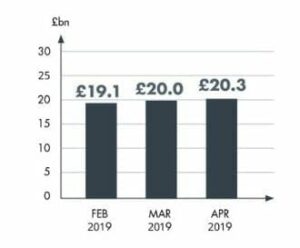Could tracker mortgages be a reasonable solution in the current climate? Borrowing has been relatively cheap over the last ten years. With a base rate of below 1% for most of that time, we have become accustomed to low mortgage rates and negligible returns on savings.
But interest rates have risen rapidly in the last year, and may have further to go as the Bank of England aims to tackle inflation. This means that borrowing is becoming more expensive. With the cost of living rising rapidly, buyers will need to be more savvy with their money to be able to afford their desired property.
There are multiple decisions to make when taking out a mortgage, such as the amount, the term, and whether to opt for repayment or interest only. The options are fairly simple and will depend on your circumstances. But the choice between a fixed and variable mortgage can be a little more tricky.
In this guide, we consider the differences between tracker and fixed mortgages to help you decide which could be right for you.
Tracker Mortgages
A tracker mortgage, as the name suggests, aims to track the base rate. The rate you pay will amount to the base rate plus a percentage set by the lender. So for example, with the base rate currently at 3%, a typical variable mortgage will cost around 3.5%. The actual rate will depend on the lender and your loan to value. If you have a large deposit, your rate might be lower, whereas buyers with a high loan to value should expect to pay more.
Tracker mortgages often have a lower initial rate than fixed mortgages, so might appear cheaper when you are comparing prices.
But if interest rates rise, your mortgage will become more expensive. If you want certainty over your monthly repayments, a tracker mortgage is probably not for you. A tracker mortgage is usually a better option if interest rates are on the higher side and you think they might reduce.
A tracker mortgage shouldn’t be confused with the lender’s standard variable rate (SVR). Tracker mortgages are taken out for a set period, and early repayment charges usually apply if you repay the loan or remortgage before the end of the term. While the SVR may be higher, sometimes it’s worth opting for this if your circumstances are likely to change in the short term.
/*! elementor – v3.10.0 – 09-01-2023 */
.elementor-widget-image{text-align:center}.elementor-widget-image a{display:inline-block}.elementor-widget-image a img[src$=”.svg”]{width:48px}.elementor-widget-image img{vertical-align:middle;display:inline-block} 
Fixed Rate Mortgages
A fixed rate mortgage offers a set interest rate so your payments won’t change for the duration of the term. Rates are currently higher than the variable equivalent, at 4.5% – 5%, so you will pay more at outset. Fixed rate mortgages also usually include early repayment charges.
But the benefit of a fixed rate mortgage is that even if interest rates rise during the term, you won’t pay any more. Of course, if interest rates reduce, you won’t benefit from the lower rate until you take out a new deal at the end of the term.
Fixed terms usually range from two to five years. The longer the term, the more certainty you have over your payments. However, there is a higher chance that the economic climate could change, which could result in lower interest rates. A longer term also means higher charges if you do decide to come out of the deal early.
A fixed rate mortgage could be the best option for you if you prefer a predictable monthly repayment amount, or if you think interest rates are going to rise further.
Choosing Your Mortgage – tracker mortgages or fixed rate?
When choosing the right mortgage, there are several other factors to take into account:
- The value of the property. If your budget is likely to be stretched, is it worth negotiating the price or looking for somewhere more affordable? Perhaps a renovation project could make your money go further.
- The borrowing term. The shorter the term, the more you will pay each month. But you will also be debt-free more quickly and will pay less interest overall.
- Your loan to value. If you can save a higher deposit you might have access to better deals.
- Your credit rating. You can check your credit report online and this should give you an idea of the type of deals you may qualify for. If your credit rating is low, it might be worth taking some time to build it up before applying. Remember, every loan application leaves a footprint on your credit report, so it’s worth giving yourself the best chance of being approved.
- Whether you plan to overpay. While most mortgages include early repayment charges, you may have the option to overpay, for example, up to 10% per year. Overpaying can save significant amounts in interest.
- Additional fees. Some mortgages might have a lower interest rate, but fees added to the loan could make it more expensive over time.
The choice between a variable and fixed rate mortgage will depend on whether you think interest rates will rise or fall, and the potential impact on your monthly budget. As interest rates are on the rise just now, a fixed rate mortgage might offer more security. However, this should be weighed up with the prospect of paying around an additional 1% in interest at outset.
Please don’t hesitate to contact a member of the team to find out more about your mortgage options.







